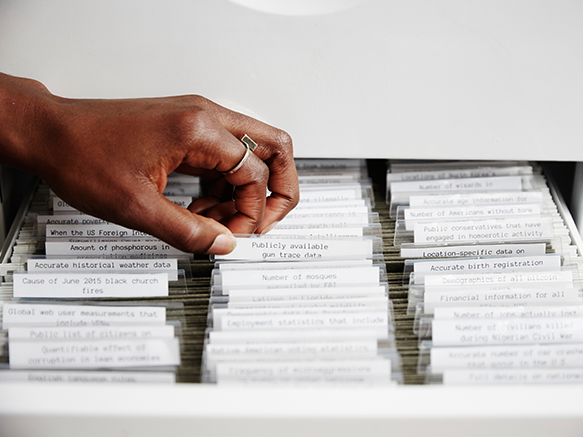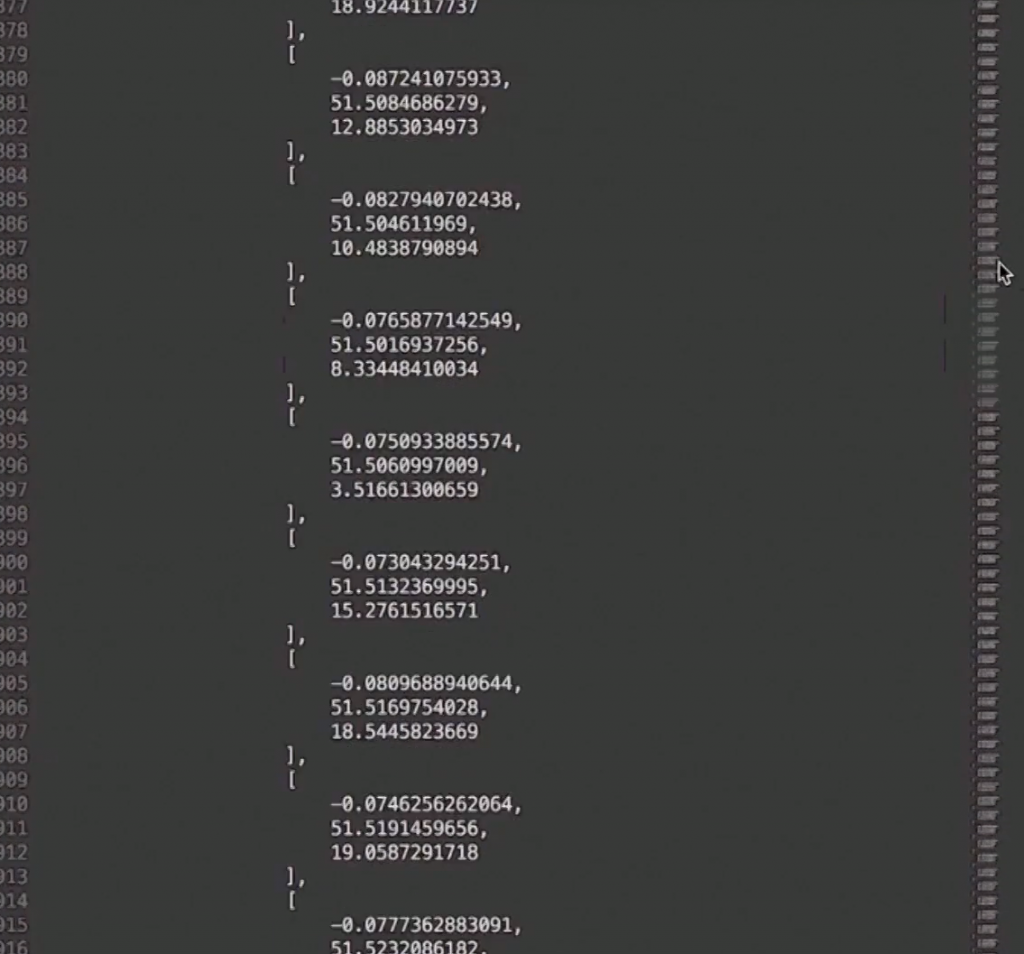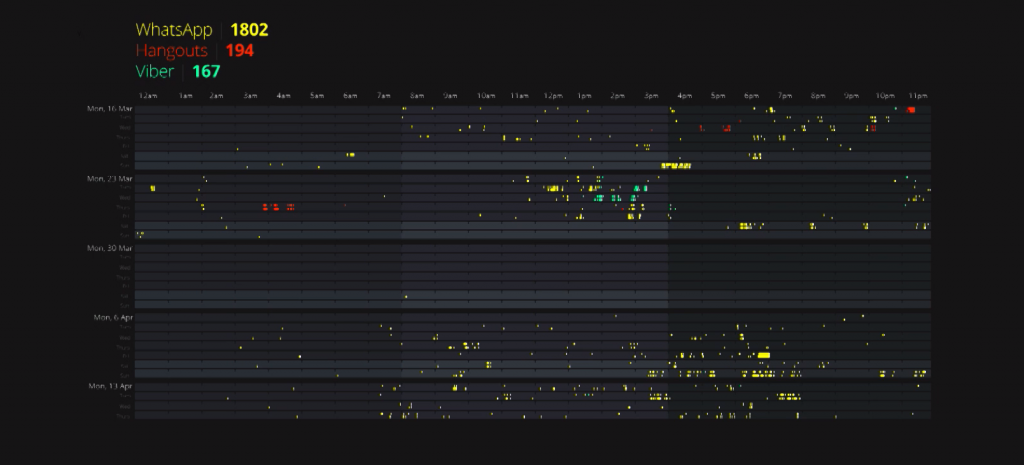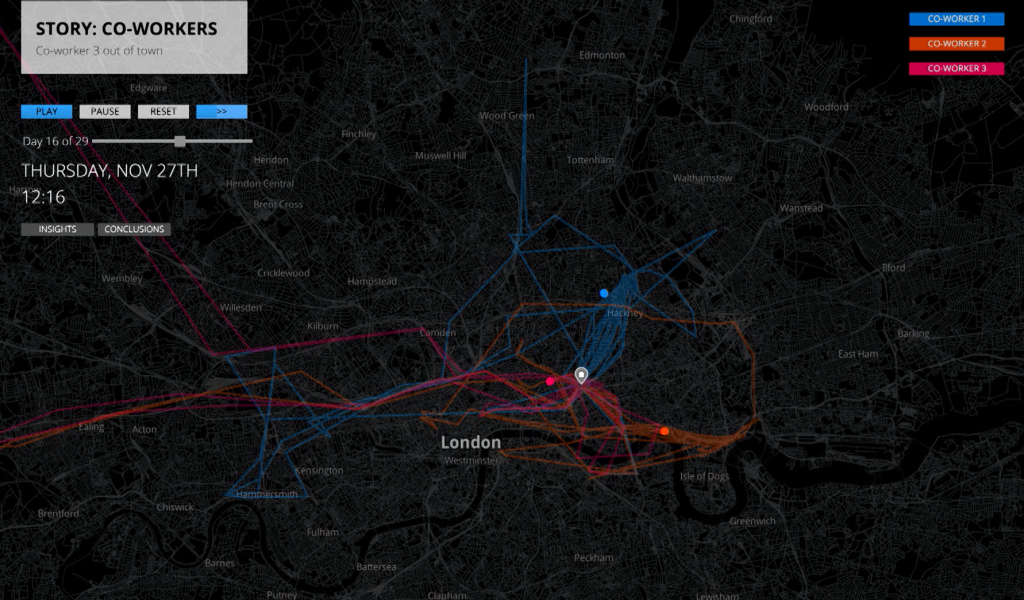Her Website: https://mimionuoha.com/

Mimi Onuoha is a creative practiioner, whose body of work illustrates her interest and expertise in seeing human patterns in data. She is a part of the Data Humanism movement in Creative Art, that artists Giorgia Lupi and Stephanie Posavec have started. She is interested in looking at how the the way information and data is modelled can reveal patterns about more than the data itself.
The thread that runs in her work is the messiness and unstructured nature of insights that run through standardised methods of measuring and collecting data for statistical methods. For example, in one of her projects she talks about, she tailed a few friends by their locations and was able to see which 2 of the 3 friends were closer to each other. Months after she was tracing patterns of their movement, the two she predicted to be close, moved in together.
Mimi Onuoha is an alum of the renowned NYU Interactive Telecommunications Program, that prides itself as being “an art school for engineers” and an “engineering school for artists”. This illustrates her creative practice very well, because her work is about unravelling the disorganization among data that seems crisp and clean, with a creative muscle for patterns.
Creative Interrogations:
Mimi calls her work during ITP as ‘creative interrogations’. These were experiments that combined research, coding, writing to dive into ideas of how data was forming the world and ideas of the individual at the same time.
Personal Stories → Creative Interrogation → Building of a Database or Dataset
The Point of Collection
She says that if as a professional, you have not looked at how data is collected, you have not entirely understood the data itself. Through that statement, she illustrates how data collection and personal lives are entangled. And it gets harder to question the methods of data collection as the data points become more and more.
In this way, her artwork is not only data visualisation, but it is also a commentary on bringing to our notice the biases, ease and ethical questions of data collection



![[OLD FALL 2020] 15-104 • Introduction to Computing for Creative Practice](https://courses.ideate.cmu.edu/15-104/f2020/wp-content/uploads/2021/09/stop-banner.png)